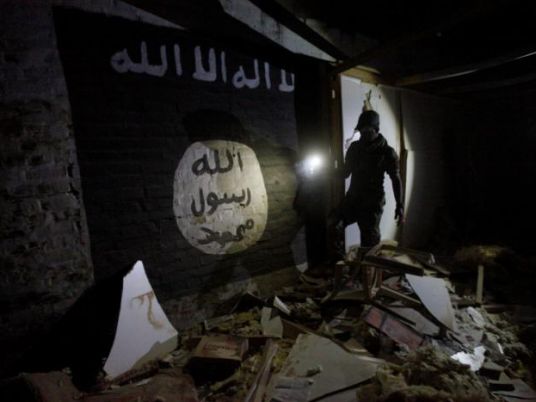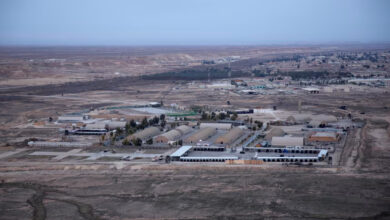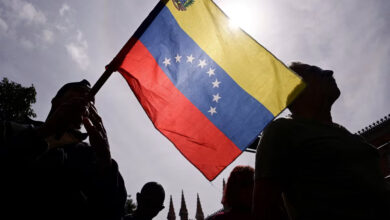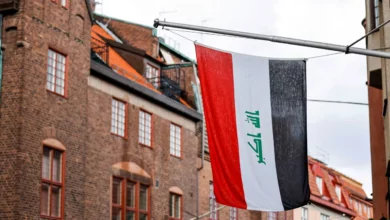
The mouth of the tunnel is hardly visible on a muddy hillside overlooking Mosul, where fighting now rages between Iraqi forces and Islamic State militants.
In less turbulent times, trains ran through it on their way to or from Mosul, but when the militants overran the area in the summer of 2014, they barricaded both ends, ripped up the tracks and built an assault course inside, on which to train their recruits.
Iraqi forces discovered the underground training camp after regaining control of the hillside last month in the early stages of a campaign to dislodge Islamic State militants from Mosul's western half.
Locals tipped them off about the location of the camp, which reveals the extent of Islamic State’s determination, despite the overwhelming number and firepower of the forces arrayed against it, which are backed by a US-led coalition.
Clambering down a bank of earth that concealed the entrance, two Iraqi soldiers went into the tunnel – about 7 meters high by 5 meters wide, lighting the way with their mobile phones.
Members of the rapid response forces inspect a tunnel was used by Islamic State militants as an underground training camp in the hillside overlooking Mosul, Iraq, March 4, 2017
They illuminated Islamic State slogans painted along the walls of the tunnel – around half a kilometer in length – and a series of obstacles, which one soldier tried out.
"Their training is similar to ours," said Kadhem al-Gharrawi, a member of the Rapid Response Division, an elite Interior Ministry Unit. "It's tough training for special forces."
It is not clear how many recruits passed through the camp or what became of them.
The physical drills complemented the group's ideological training, evidence of which is contained in booklets littering the floor of the tunnel, detailing its uncompromising doctrine.
A leaflet titled "Types of Idolatry", lies beside empty cartons of orange juice drunk by the recruits and packaging of the boots and balaclava headgear they wore.
The railway was built in the early 20th century, as part of the line connecting Berlin to Baghdad.
It was out of use when Islamic State overran Mosul in the summer of 2014 and declared a modern-day caliphate spanning Iraq and Syria, pledging to expand across the world.
"By the will of God, we will conquer Rome," reads one mural painted on the wall of the tunnel against the background of a blood red sun.
Near the start of the assault course lie several backpacks full of sand, which were worn by recruits to weigh them down as they went over the obstacles, to increase the difficulty.
After coming off the death slide, recruits would have swung along monkey bars and then thrown themselves flat to crawl under barbed wire, past the words "We will prevail despite the global Crusader alliance" painted on the wall.
Red arrows point to the direction in which they were supposed to scramble over a wall – still covered in scuff marks made by their boots.
The recruits appear to have slept there some of the time: bedding is strewn in two chambers dug into the sides of the tunnel, including a pink duvet cover decorated with cartoon character Mickey Mouse.
The militants also installed lighting in the tunnel, powered by a generator set in the hillside. There was a medical clinic in a portacabin, as well as four shower cubicles and a place to perform ablutions before prayer in a tunnel section labeled "mosque".
Another area was designated for washing dishes, not far from the slogan: "Heaven is jihad in the path of God".
(Photo credits:REUTERS/Alaa Al-Marjani)
(Reporting by Isabel Coles in south of Mosul, Iraq; Editing by Clarence Fernandez)




